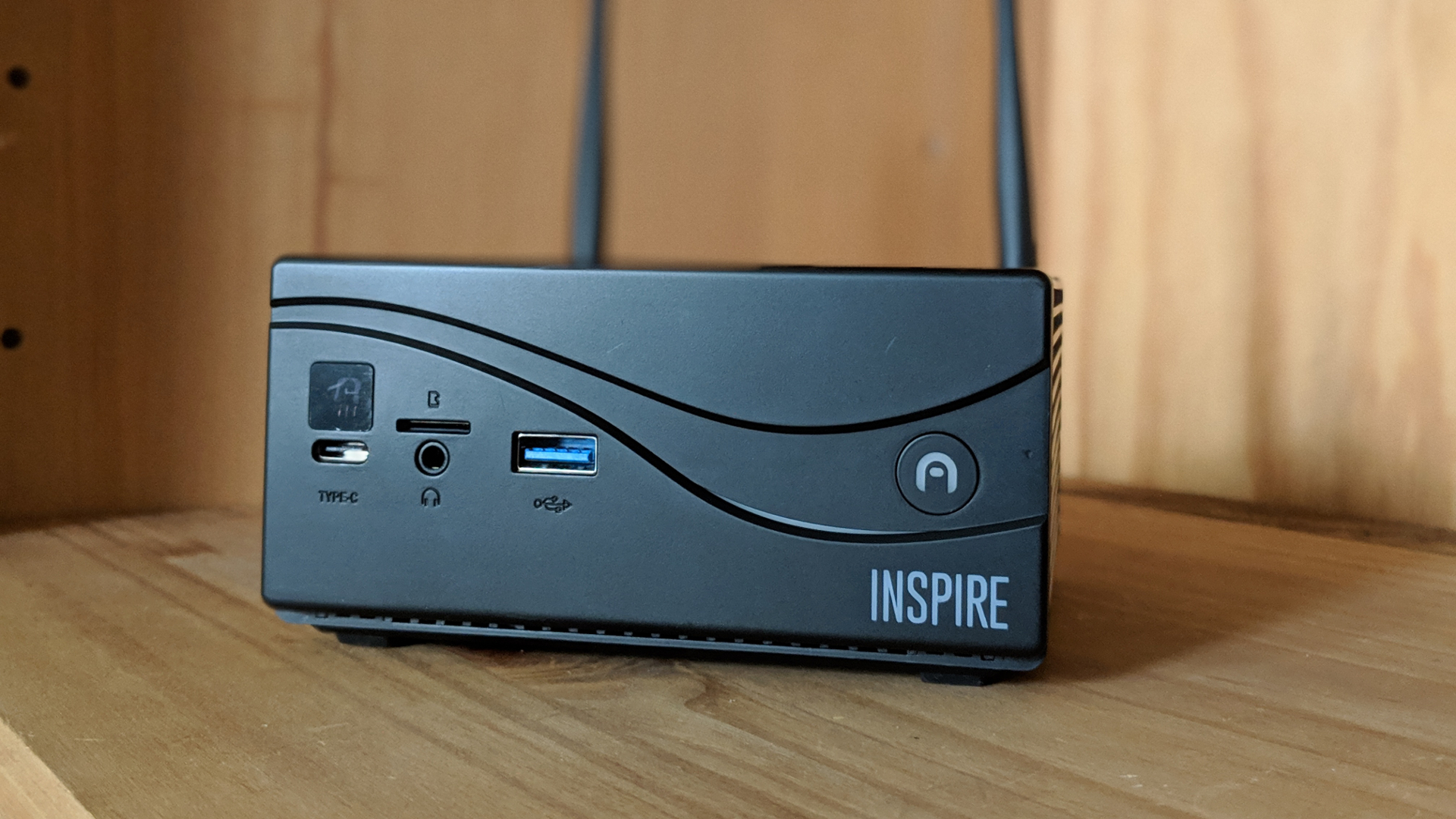TechRadar Verdict
The Azulle comes close to being the perfect silent PC. It is affordable and well-designed, but we’d like it to sport newer processor ranges (like the 8250U, for example), and have more options in terms of choosing components.
Pros
- +
Affordable
- +
Good expansion capabilities
- +
Fantastic design
- +
VESA mount
Cons
- -
Sample only had one memory module and a SATA drive
- -
No cheaper options (i.e. 8GB/256GB)
- -
No extended warranty
- -
Only Kaby Lake CPUs available
Why you can trust TechRadar
Despite advances in modern technology, if there’s a thorny problem that still lingers in every single device category, it is heat dissipation: phones, laptops, and PCs alike can all sometimes have issues getting rid of unused energy that gets converted to heat.
The usual route to follow is to use a heatsink fan which is both noisy and consumes power. Other methods include water cooling or simply using the entire body of the device to evacuate heat.
The latter devices are known as fanless or silent PCs and are sought after in environments where the absence of noise is a must – conference rooms, auditoriums, home theaters, sound recording studios, and so forth. US vendor Azulle unveiled the Inspire mini PC late last year, boasting that the device is its most powerful fanless PC yet.
Our review model retails for $797 and runs with a Core i5-7200U processor with 16GB RAM and a 1TB SSD. Kaby Lake Core i3 and Core i7 models with the same configuration are available, and barebones SKUs – with an additional J4205 CPU option – are on sale as well.
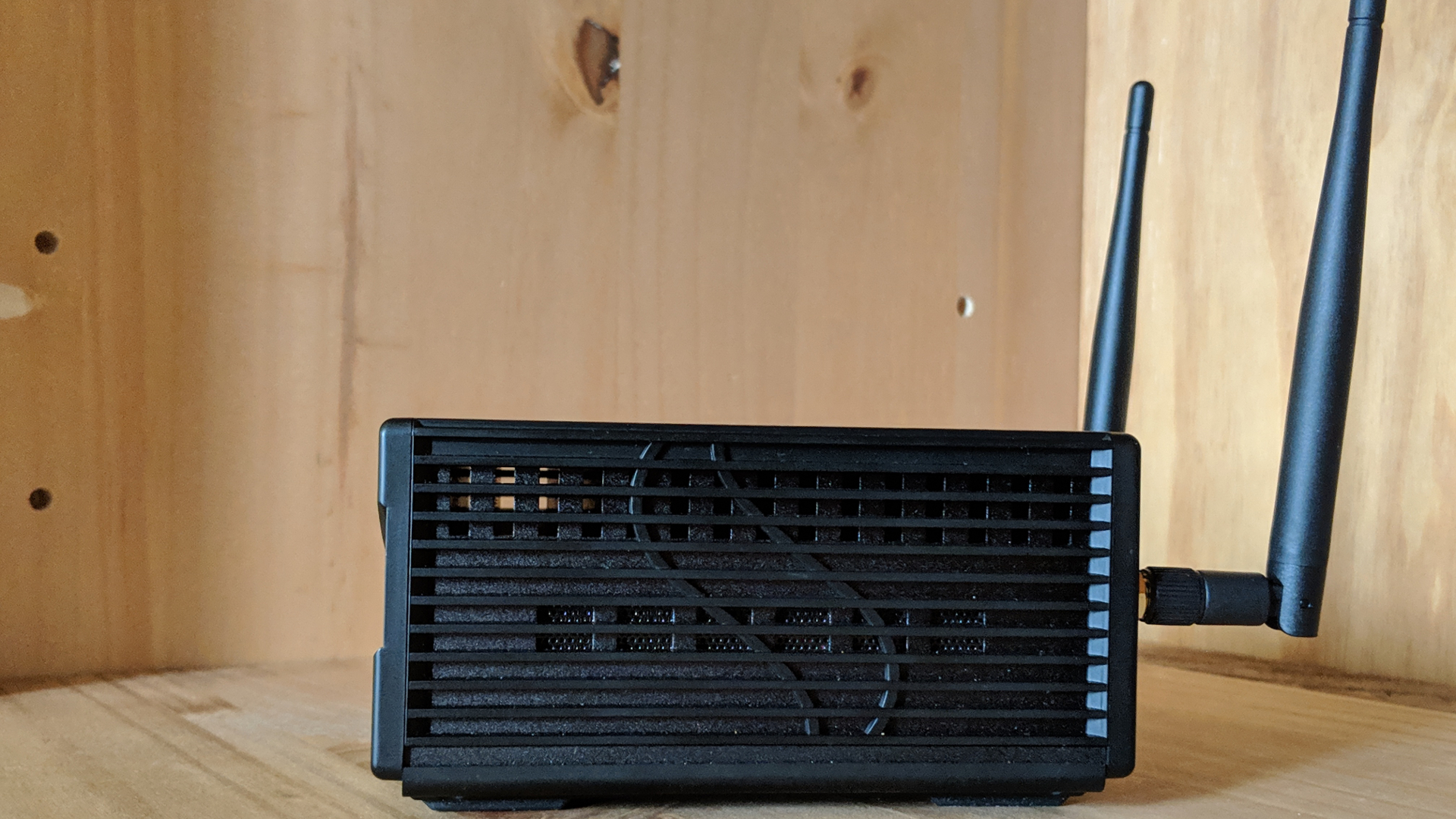
Design
The Inspire is very solidly built and uses aluminum as the primary material for its enclosure. It feels sturdy and will get warm when in use, a reassuring property.
The front plays host to the IR receiver plus a USB 3.0 connector, a microSD card reader, the power button and a 3.5mm audio jack. The rear has the antenna connectors, a proprietary power port, a COM/serial port, a full-size DisplayPort, HDMI, a Kensington Lock, two USB 3.0 ports and an Ethernet connector.
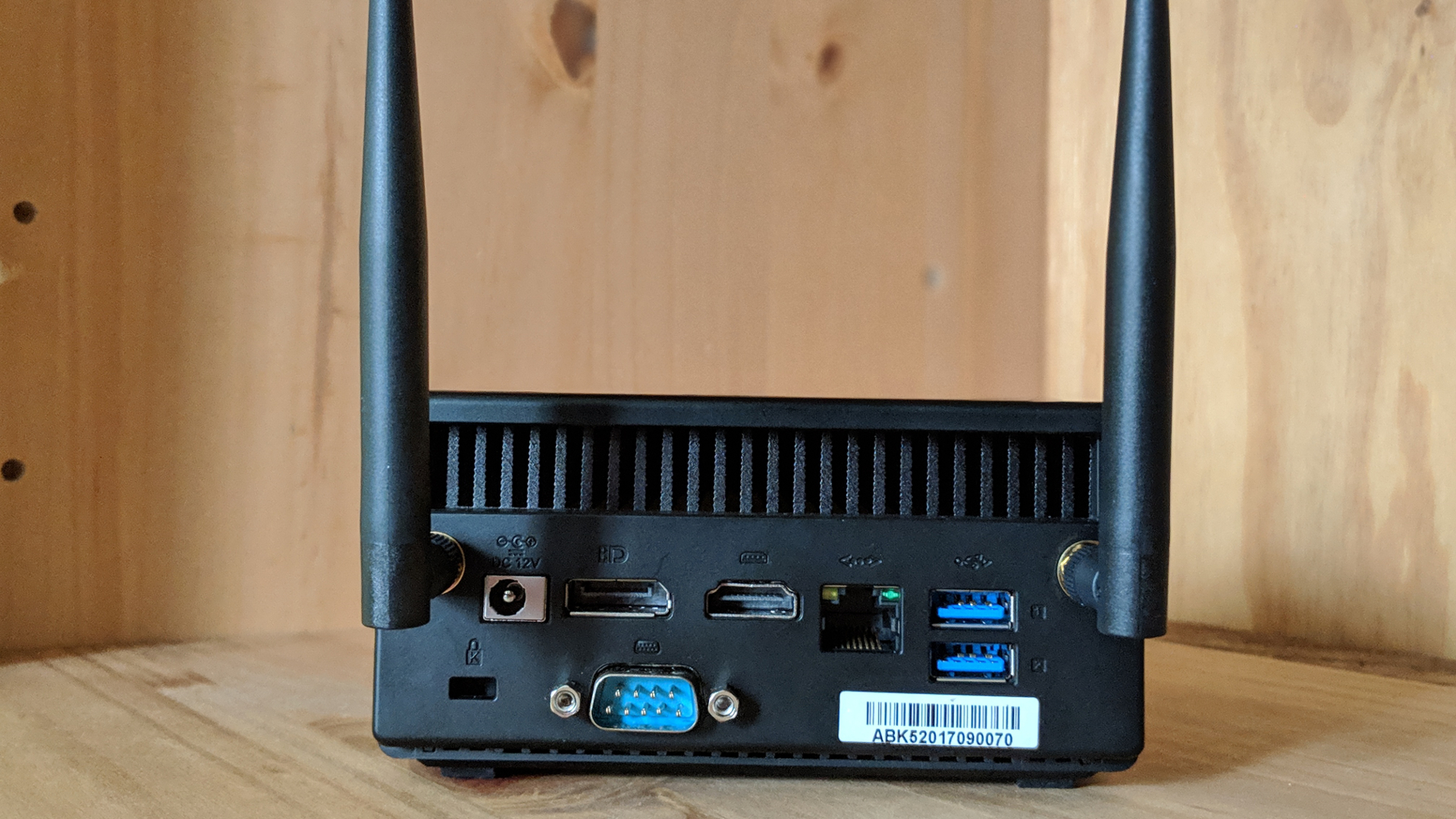
Here is the Azulle Inspire configuration sent to TechRadar Pro for review:
CPU: Intel Core i5-7200U dual-core 2.5GHz
Graphics: Intel UHD Graphics 620
RAM: 16GB DDR4
Storage: 960GB SSD
Ports: 3 x USB 3.0, audio jack, LAN, microSD, serial port, DisplayPort, HDMI
Connectivity: 802.11ac Wi-Fi, Bluetooth 4.2
Size: 125 x 125 x 48mm
It is bundled with a 36W power supply unit (12V, 3A), a pair of removable antennas and a remote control, alluding to its potential role as a Home Theater PC (HTPC).
Sign up to the TechRadar Pro newsletter to get all the top news, opinion, features and guidance your business needs to succeed!
There are plenty of air vents all around the Inspire to facilitate airflow. At 125 x 125 x 48mm, it is fairly compact, but even so, this device has enough space inside for an additional 2.5-inch drive. There are two memory slots as well which will take up to 32GB memory in dual-channel mode, plus you get a 75mm VESA mount.
Performance
The Inspire we were sent for review was powered by a Core i5-7200U processor which was first unveiled back in 2016. Azulle obviously wasn’t able to source a more recent CPU like the far more powerful Kaby Lake R Core i5-8250U, which is slightly more expensive but packs twice the number of cores and cache. Both sport the same integrated graphics – HD Graphics 620.
Our sample came with one 16GB Patriot DDR4 memory module and a 960GB Patriot SSD; there’s no option for less memory or storage. You can easily open up the mini PC by removing just four screws. Overall, it performed in line with our expectations bearing in mind that this is a laptop CPU that has been shoved in a desktop PC.
Here’s how the Azulle Inspire performed in our suite of benchmark tests:
Passmark: 2,817
Passmark CPU: 5,009
CPU-Z: 351 (single-thread); 918 (multi-thread)
Geekbench: 3,728 (single-core); 7,281 (multi-core); 28,938 (compute)
Cinebench CPU: 805
CrystalDiskMark: 512 MBps (read); 498 MBps (write)
Novabench: 969
Atto: 537 MBps (read, 256mb); 518 MBps (write, 256mb)
Sisoft Sandra (KPT): 1.02
Windows Experience Index: 5.6
The SATA SSD is bottlenecked by the interface and it is a shame that there’s no NVMe storage device instead. Adding one in, along with two memory modules, will likely improve performance numbers significantly.
Usage
The power button lights up blue when the machine is on, and so does part of the Inspire’s front facia – which can be slightly annoying in a work environment. There’s a wireless card installed in an M.2 slot – a standard Intel AC 3165 model – which is a good complement to the external antennas.
The Inspire is fitted with a bracket that holds the 2.5-inch SSD and it has a thick layer of thermal padding. Note that the product came with Windows 10 Pro but there aren’t any options to go for Linux (or no installed operating system, for that matter).
As expected, the device was totally quiet, but did get a tad warm under load (which is also to be expected). What wasn’t expected was the one-year warranty which – for a business PC – is disappointingly short, with no option to upgrade to a longer period.
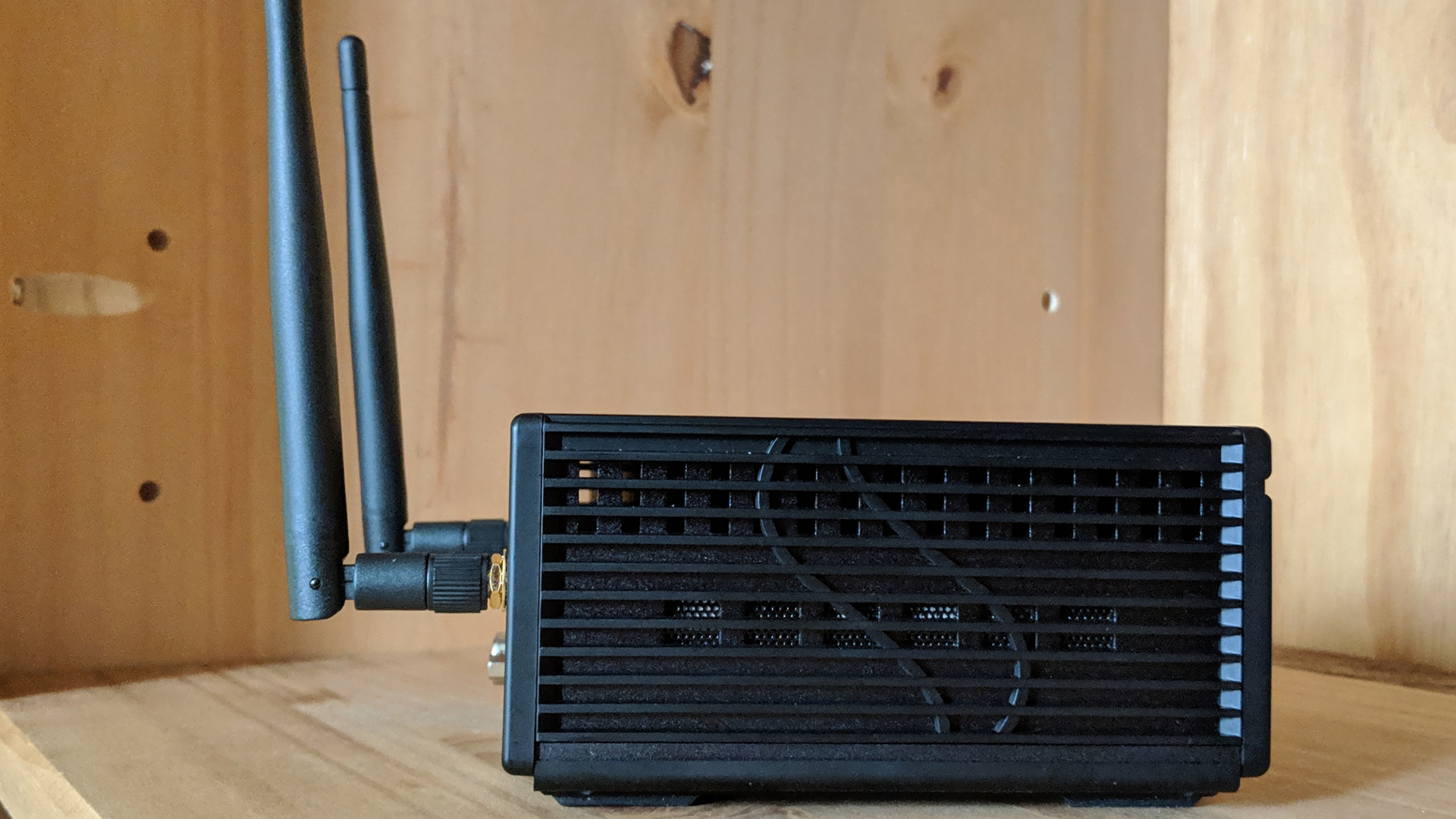
The competition
One manufacturer that will give Azulle a run for its money is a Chinese outfit called Hystou, which specializes in fanless and industrial PCs. A barebones PC (Hystou FMP04) with the same CPU as the Inspire costs $260, less than a third of the price of Azulle’s fanless mini PC. Need something beefier? Then $370 gets you a Core i7 8550U model (Hystou P05B) which is at least twice as powerful as the Inspire. However, note that both models do not come with an operating system, system memory or an SSD.
There are a number of niche industrial vendors, like Sparton rugged electronics, that sell embedded PC solutions, but they are without exception far more expensive than either Azulle or Hystou. They are designed to operate in a much wider temperature range, though, which explains why their starting price is above $1,000.
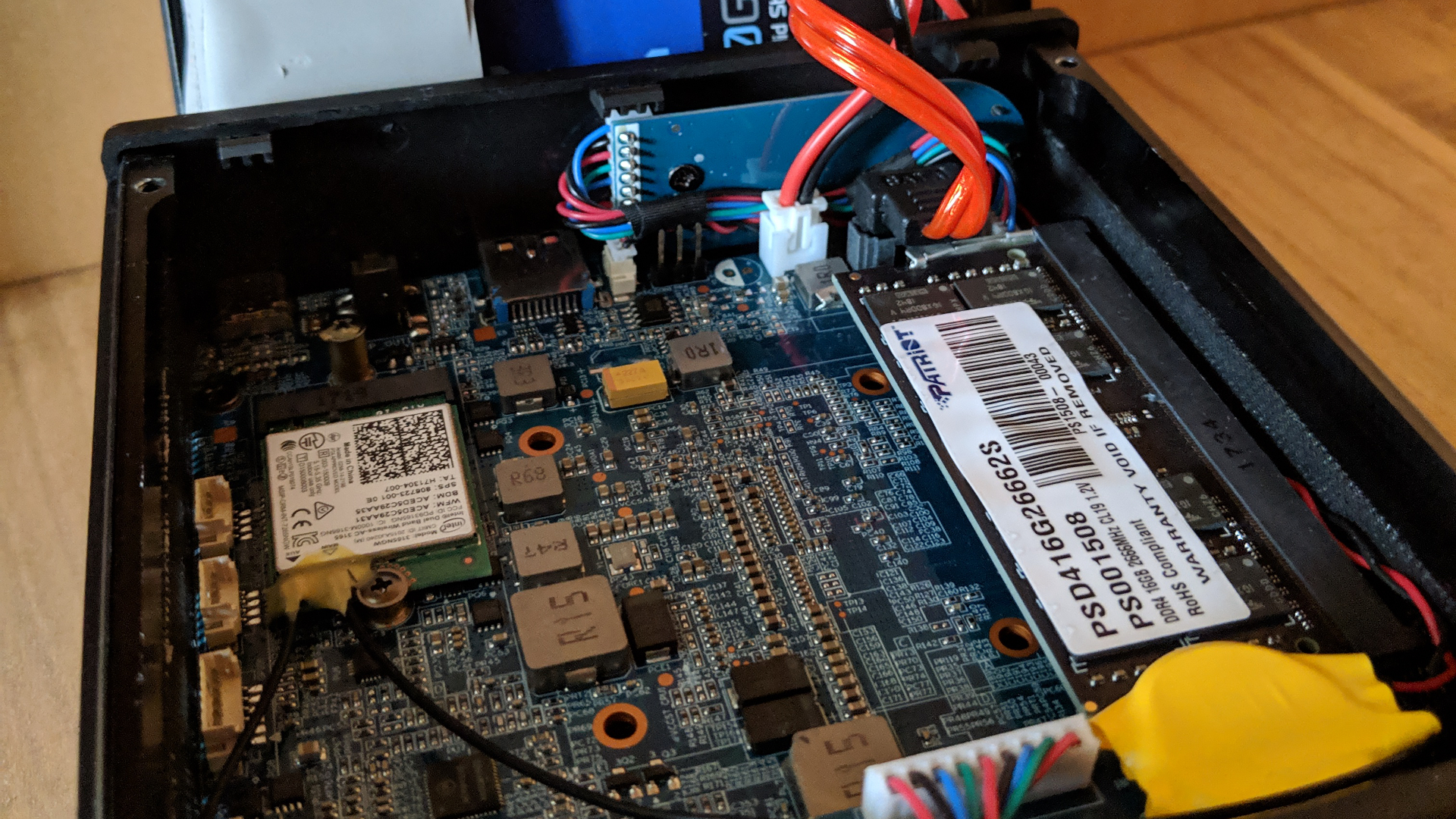
Business take
If you want a true fanless, silent PC, you could build one yourself, or either pick up a full system or barebones product. In the case of the Inspire mini PC, it might be worth going for the barebones version in lieu of the full system. You can save up to $427 which is more than the price of the barebones itself – with memory and storage at an all-time low price-wise, you can pick up two 8GB SODIMM memory modules and a 1TB NVMe SSD from Crucial for under $230, leaving you with $200 to spend elsewhere.
Hystou is the only competitor to Azulle that we know of. It does provide a more complete range of products, although many will prefer a vendor that can deliver a full PC system – with an OS installed – rather than barebones, which is what Hystou specializes in.
- We’ve picked out all the best business computers

Désiré has been musing and writing about technology during a career spanning four decades. He dabbled in website builders and web hosting when DHTML and frames were in vogue and started narrating about the impact of technology on society just before the start of the Y2K hysteria at the turn of the last millennium.
